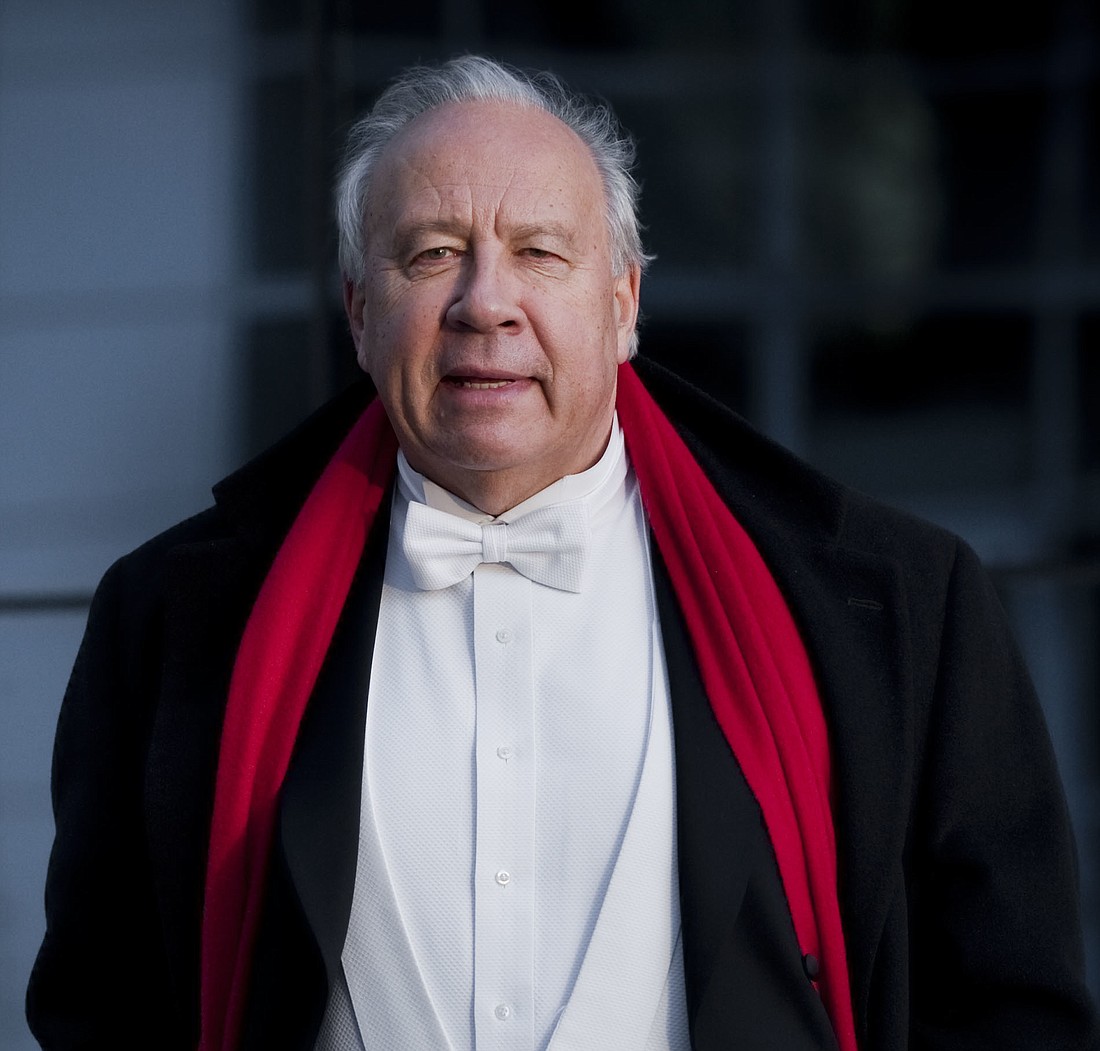- April 20, 2024
-
-
Loading

Loading

There were 103 musicians making up the Sarasota Orchestra for its Masterworks V concert this past weekend. They were led by one of the most well-known conductors in the world, Neeme Järvi, who is not only a world class Maestro but also probably the most recorded conductor alive today, with some 500 recordings to his name. From Europe, Scandinavia and Russia to the United States and Canada, Järvi has made himself a reputation as one of the greats.
The program, an exciting one, featured three works that would be daunting for any major orchestra but Sarasota Orchestra played them with such fluidity, sonority and style, this concert pushed them over the edge to World Class. And I do not exaggerate.
Brahms’ “Tragic Overture” showed off the excellent balance between upper and lower strings from the first two crashing chords through the richness and depth the ensemble achieved throughout the piece. And it was the perfect opener for Wilhelm Stenhammar’s Piano Concerto Number 1, which opens with the same two resounding chords, albeit in a different key.
That pattern, along with many other allusions to Brahms (his First and Second Piano Concertos and the Fourth Symphony, along with references to Prokofiev and Rachmaninov in the finale), made this a somewhat derivative work but then, Stenhammer lived about the same time as those composers and it was refreshing to hear his Swedish take on late romanticism: lush, warm, passionate and very beautiful. A little like Brahms on Fiords.
The pianist Per Tengstand, did some beautiful playing in the piece, keeping the solo passages above the thick orchestration and joining in the tuttis, as they were written in the score.
Stenhammer is probably more familiar to classical music radio listeners than concert goers because the composer has been a staple of the radio archives for many years. Unfortunately, his music isn’t played all that often in concert halls and it deserves to be heard more often.
But the work that perked up everyone’s ears right from the outset was the symphonic poem, “Also Sprach Zarathustra,” by Richard Strauss. There are few of us who don’t remember its impact in the movie, “2001: A Space Odyssey,” but there is much more to this astounding work than the opening measures. Like the composer’s “Rosenkavalier” and so many of his other pieces, this piece of music combines passion with bittersweet memories, intellect with soulfulness. And everywhere, there’s heart.
This is programmatic music, with allusions to Zarathustra, or Zoroaster, whose teachings were used by Nietzsche. But it’s the hearty, passionate music by Strauss that makes it the important work it is.
Neeme Järvi with little fanfare or movement, manages to elicit sounds from the orchestra we didn’t know they had in them, yet. The ensemble was rich and stylistically true to the composer. Järvi, throughout the concert but particularly in the Strauss, built long lines of tension, reaching climaxes at just the right points in the music.
There are many solos throughout the Strauss, from the opening organ (for once in tune with the orchestra, and just that much slightly higher in pitch to make it exciting rather than the let-down I felt in some of the old recordings), to the first and second chair players who made beautiful chamber music amid the grandeur of Strauss’ massive orchestration.
To round out the already substantial afternoon concert, Sarasota Orchestra and Järvi delivered a short work for strings (and timpani) by Sibelius that showed off the ensemble’s incredibly rich and organic sound, digging deep into glacial harmonies with precision and fervor.
We had a world-class conductor on the podium but, my friends, we now have a world-class orchestra in Sarasota. The question is, what do we do with them? They deserve to be heard by the rest of the music world through recordings and tours. And, here at home, they deserve a hall worthy of their remarkable gifts.